How revolutionary trainer Martin Pipe changed the racing landscape forever
Steve Dennis on the man who overthrew the old order, not by force but by cunning
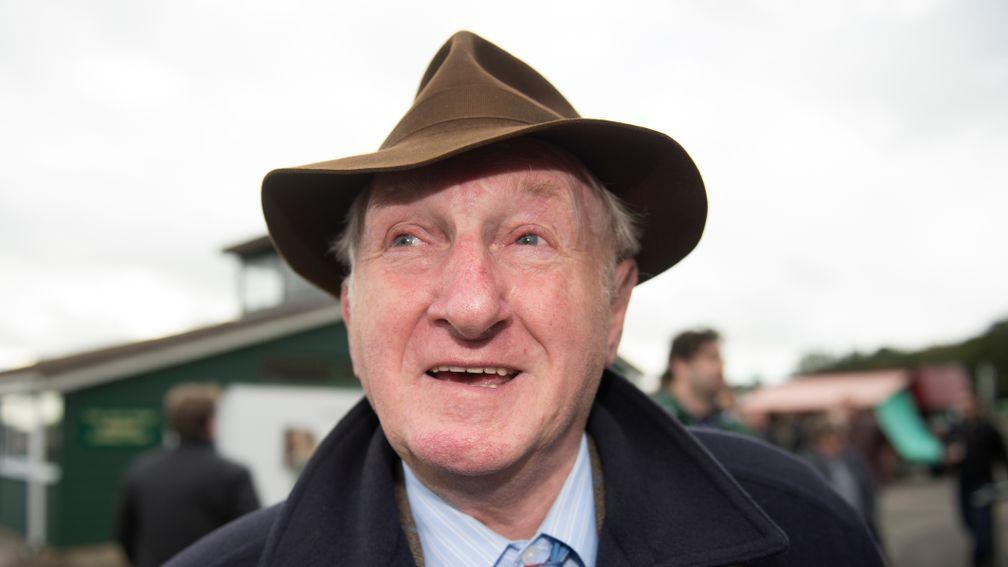
Published in the Racing Post on May 22, 2017
What does a revolutionary look like? He might have the smouldering eyes of Guevara, or the unflinching expression of Cromwell, or even the luxuriant moustache of Zapata. Revolutionaries do not, as a rule, wear trilby hats, or a slightly nervous half-smile, or lay out the terms of the revolution in a soft rural burr.
It's not an image that beams down from a million student walls, is it? Martin Pipe does not look like the sort of man to storm a barricade or lob grenades at government forces, although we all have our moments. Yet Pipe was the man who overthrew the old order of racing, not by force but by cunning, and installed the new model that sustains today. There have been velvet revolutions, quiet revolutions, glorious revolutions, bloody revolutions. And this one?
"It was just common sense, really," he says, the half-smile evolving into a half-laugh. "Doing the simple things well, and learning from the mistakes. That's what we did."
The Common Sense Revolution, then. The propagandists might struggle with that message – aux armes, citoyens, but please use some common sense – but Pipe's careful thought processes turned conventional thinking on its head. In that foreign country of the early 1970s, trainers had a leisurely attitude to preparing their horses, fitness being something that was arrived at only after a protracted journey involving miles and miles of roadwork, miles and miles of cantering and galloping, and a race or three.
Pipe's way of training was different. Moreover, he never wanted to be a trainer, and it's tempting to conclude that Pipe was not so much a racehorse trainer as a consummate problem-solver, the problem being 'how to get this animal to run faster than similar animals'.
"I never, ever, wanted to be a trainer," says one of the greatest trainers ever. "It just evolved. I didn't know anything about training when I started, I didn't have a clue. I worked for my father David in his betting shops and I wanted to be a jockey, I wanted to ride. I thought it would be easy but it was harder than it looked."
One point-to-point winner and a broken thigh later, Pipe needed a new outlet for his energies. Down on the farm, at the now-legendary Pond House in the hamlet of Nicholashayne, on the border between Devon and Somerset, he already had a few point-to-pointers that he wouldn't now be riding. One problem solved the other.
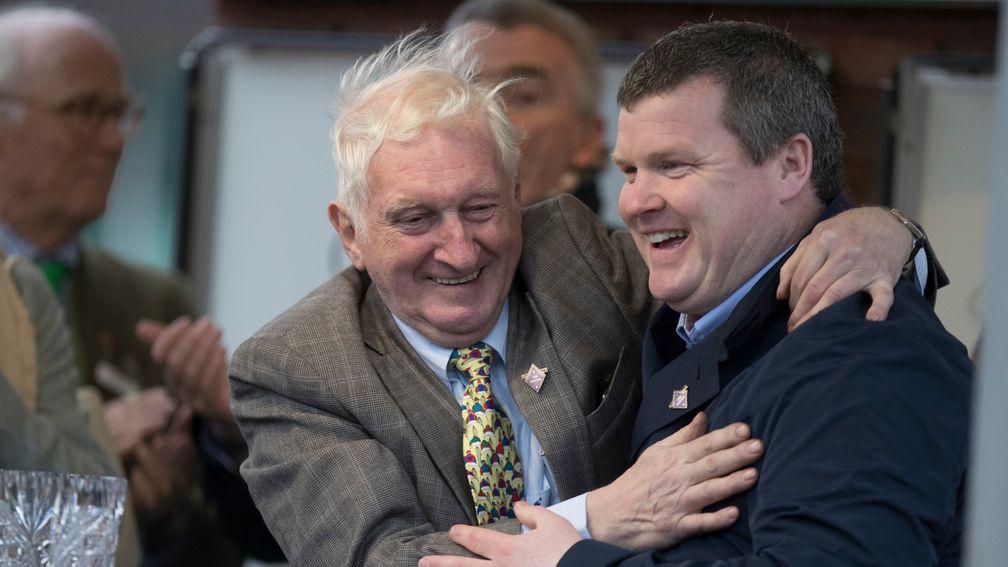
"I thought we'd train them. We didn't have any gallops, just fields, so we built a fantastic mile-and-a-quarter gallop on top of a hill, but it didn't give us any winners.
"I did the things that everyone else did but it didn't seem to work. Then we bought a set of scales, started weighing the horses, started taking blood tests because that had been mentioned in a lot of books I'd read.
"A local vet did the blood test and said 'this horse won't win', and I reckoned that he didn't know anything, and this from a man who knew nothing himself. I ran the horse – and he was exactly right, it got tired and dropped away."
Pipe's background outside training proved a blessing rather than a curse. Unburdened by the dead weight of received wisdom, Pipe's insatiable curiosity propelled him to seek answers from less obvious sources.
"I have an inquiring mind, and I picked the brains of everyone I could," he says, and when everyone was asleep he sat up poring over a pile of books. He reaches now for the bookshelf, for his bible, for Modern Horse Management by Major RS Timmis, among the yellowing pages of which are his handwritten notes of long ago. 'Water must not be given half an hour before fast work as all the space possible is required for the lungs to work. Water the horse after hard work.'
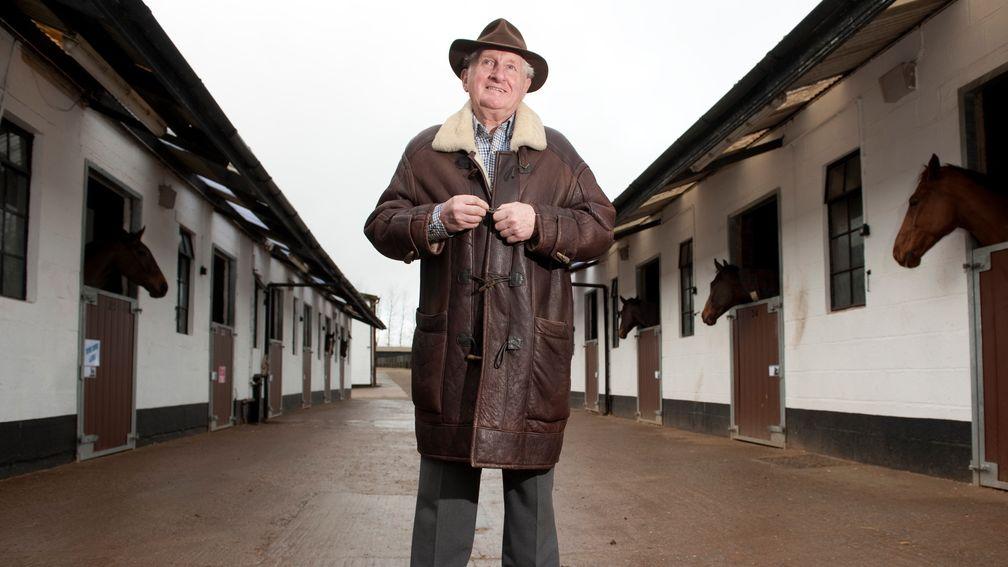
After a conference in Newmarket he was the only one to challenge one of the speakers, Barry Allen, and at the end of their conversation Allen had agreed to set up a small laboratory at Pond House to facilitate swift results of blood tests. When those results were known Pipe, a meticulous record-keeper, wrote them down, constructing a complete record of his horses' health.
"That gave us loads of answers. It's so simple – facts and figures give you results, they take the guesswork away. Everything was written down – that habit started when I was working in Dad's betting shops. I could get the notebooks out now and tell you what [1981 Triumph Hurdle winner] Baron Blakeney did every day of his life."
His zeal for knowledge took him into the operating theatre – "I helped to dissect horses, I sat in on operations, saw the internal workings so I could see how it all fits together, see how the engine works. It helped me understand more, and it was fascinating" – and into other yards, which he rarely left empty-handed.
"I used to steal their food," he grins, before quelling the notion that he rifled the larders chez Winter and Walwyn. "We grew our own hay and oats, but I used to pop into feedstores and grab a handful of whatever they had, take it home and analyse it to see what the difference was.
"It used to ruin my suits and my wife Carol wasn't very happy. I should have thought of plastic bags, I suppose. I've still got some of that old feed, and sand from gallops all over the world. It's there if we need to check something, anything."
Pipe the puzzle-solver was in his element. It's tempting to wonder what he might have done had he not chosen racehorses as his line, whether we might now be holidaying on the moon if he'd turned the tractor beam of that inquiring mind towards the space race; others have wondered too.
"I had a nice letter from John Brown, who owned Shooting Light and in his role at William Hill bought my father's betting shops before rising to managing director. He wrote 'thank God you never joined William Hill because you'd have had my job'.
"All I did was put my heart and soul into it – my father told me that I had to be good at what I did, had to make mine the tidiest betting shop, whatever. If I had a spare ten minutes I didn't sit about, I found a job to do. Never waste time."
The final piece of the puzzle remained to be pressed into place. How do you get them fit? And here was the kernel of the Common Sense Revolution. Other trainers did blood tests, compared feed, knew a bit about the pastern connecting to the cannonbone, the cannonbone connecting to the kneebone. But Pipe knew that if he could get his horses fitter than anyone else's, 100 per cent fit, they would win races. It was a problem; Pipe set out to solve it.
"We did lots of things, we thought we were giving them loads of work but it wasn't having any effect. We didn't have anywhere around the farm to make a gallop, so eventually we knocked out some hedges and galloped around a field and sprinted up the hill, that's how the first winner came along."
It is worth dwelling on Pipe's first winner, Hit Parade at Taunton in May 1975, which owed very little to the inquiring mind and a great deal to sweet chicanery – jockey Len Lungo went around the track before the first race and loosened the second section of hurdle at each flight, so that front-running Hit Parade could blithely gallop through the obstacles without needing to pick his feet up. Back at home, though, Pipe was developing his secret weapon.
"We used upside down turfs and made the gallop longer and longer, had a dirt gallop during the summer. I wanted the gallop to be in a straight line so the horses wouldn't have to change leads. It was five furlongs long, the horses cantered and galloped up and down – that turned out to be interval training.
"Getting there was all trial and error. The horses seemed to enjoy what they were asked to do, they were very relaxed. They love routine, love repetition. They had a break at the top of the strip and cantered back down – if you canter up something you have to canter back down because it makes you use the other set of muscles. Seems obvious, really. Just common sense."
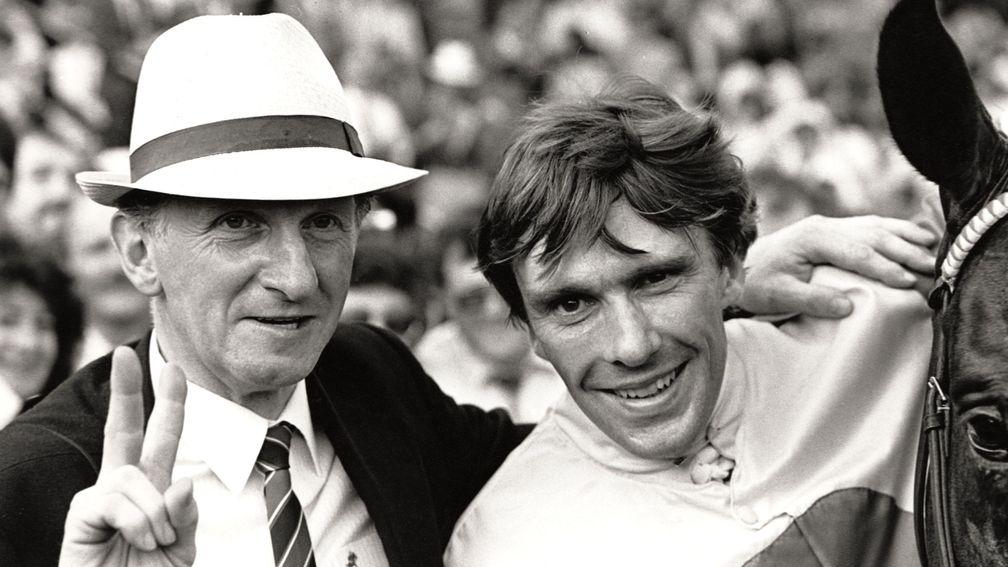
Indeed. That gallop, still supplying Martin's son David with winners, should really be a listed monument given the effect it had on Pipe's career and on racing as a whole. There are apocryphal, earlier reports of other trainers utilising the interval format, but Pipe refined the process into a system that eventually brought him 15 trainers' championships.
The ability to get his horses fitter than any other trainer meant he could buy cheaply at the sales, secure in the knowledge that he could improve any horse well beyond what it had hitherto shown. The trademark Pipe horse was a slight, wiry hurdler with barely an ounce of surplus fat, a prominent ribcage and a zest for front-running that rendered pursuit hopeless. Catch them if you can; no-one could. In every betting shop, every day, the revolution was televised.
"You don't see fat athletes, do you? You can make a good horse a slow horse if you run him 20kg overweight – that makes up to about 45 lengths. Do you want to give horses that much start? A racehorse is an athlete and it has to be properly fit. It's only common sense.
"Others were very good trainers in the approach they took, but we had a different approach, trying to make life easier for the horse, because there's more risk in running an unfit horse."
He pauses in the relating of the doctrine to recall an archetype of the glory years, the essence of the Pipe way. "A horse called Splendid Magnolia, I remember leading it off the lorry on a piece of string. My head lad said 'if you win three races with this you'll be a trainer'. And we won four. There were lots of cheap horses winning little races, I enjoyed getting the best out of them, and we had good jockeys who rode them to maximise their fitness and ability.
"Every horse is different, like human beings. You study them, see what they do, how they work, and learn from it. Chatam ended up a very good horse but I simply couldn't get him fit. Why? It took a long time to work out that the same girl rode it up the gallops every day and she weighed 6st nothing, and other horses were going up under 12st. He was a big horse and he was doing half the work of the others! After that he carried a weight-cloth – obvious, isn't it?"
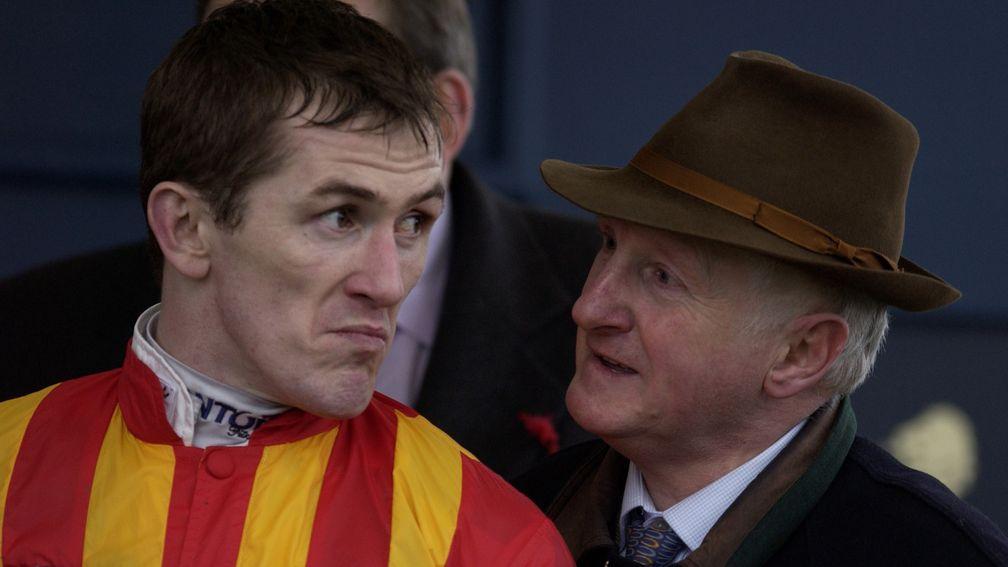
When Baron Blakeney won the 1981 Triumph Hurdle, Pipe had no more than a dozen horses. Four years later he broke 50 winners in a season for the first time, all hurdlers – "People said I couldn't train chasers – I just didn't have any, they were too expensive." Four years after that he was champion for the first time with more than 200 winners, and from then on his feats were scored so deeply into the record books that they will never fade.
With success, inevitably, came suspicion. Who was this hick from the sticks winning all these races? ITV made a programme in its Cook Report strand that basically accused Pipe of every dodgy practice short of witchcraft, and although there was no foundation to the insinuations they wounded Pipe deeply.
"It really did hurt. I was doing nothing wrong, just training my horses to the best of my ability. I wanted to commit suicide I was so upset. But some good trainers stood behind me and Percy Brown, a steward at Exeter races, saved my life, he really did. I went to Exeter a couple of days after the programme, I wanted to kill everybody, I was so angry and upset, despondent.
"Almost as soon as I walked into the course this steward said to me 'Mr Pipe?'. I thought 'what d'you want?', knew there was going to be an argument. And he said 'I want to send you a horse'. That really brought me back to life, something like that just when I needed it. I was at my lowest ebb and he threw me a lifebelt."
Now there's barely a trainer in the world who doesn't use Pipe's interval method, an imitation he describes, suitably, as very flattering. The revolution is global, born of an open, inquiring mind and an all-encompassing attention to detail. And, of course, one essential quality.
"It's all down to common sense. I think I had a lot of common sense." The old revolutionary nods his head, a twinkle in his eye.
More RP Classics:
'The stewards were after me big time. They were trying to get me warned off' – the Easterbys
'I gallop the horses on the neighbours' farms when they aren't looking' – John Manners
From triumph to tragedy in 16 days: the story of sensational grey One Man
Steve Cauthen: Brough Scott recalls how the top US rider took Britain by storm
Ted Walsh: look, sometimes I put my foot into it but that is part of what I am
Great racing coups: the fascinating tale behind the infamous Gay Future gamble
Keep up to date on the must-have news, tips, photos and more by following the Racing Post across all social channels
Published on 10 April 2020inSeries
Last updated 14:07, 10 April 2020
- We believed Dancing Brave could fly - and then he took off to prove it
- 'Don't wind up bookmakers - you might feel clever but your accounts won't last'
- 'There wouldn't be a day I don't think about those boys and their families'
- 'You want a bit of noise, a bit of life - and you have to be fair to punters'
- 'I take flak and it frustrates me - but I'm not going to wreck another horse'
- We believed Dancing Brave could fly - and then he took off to prove it
- 'Don't wind up bookmakers - you might feel clever but your accounts won't last'
- 'There wouldn't be a day I don't think about those boys and their families'
- 'You want a bit of noise, a bit of life - and you have to be fair to punters'
- 'I take flak and it frustrates me - but I'm not going to wreck another horse'